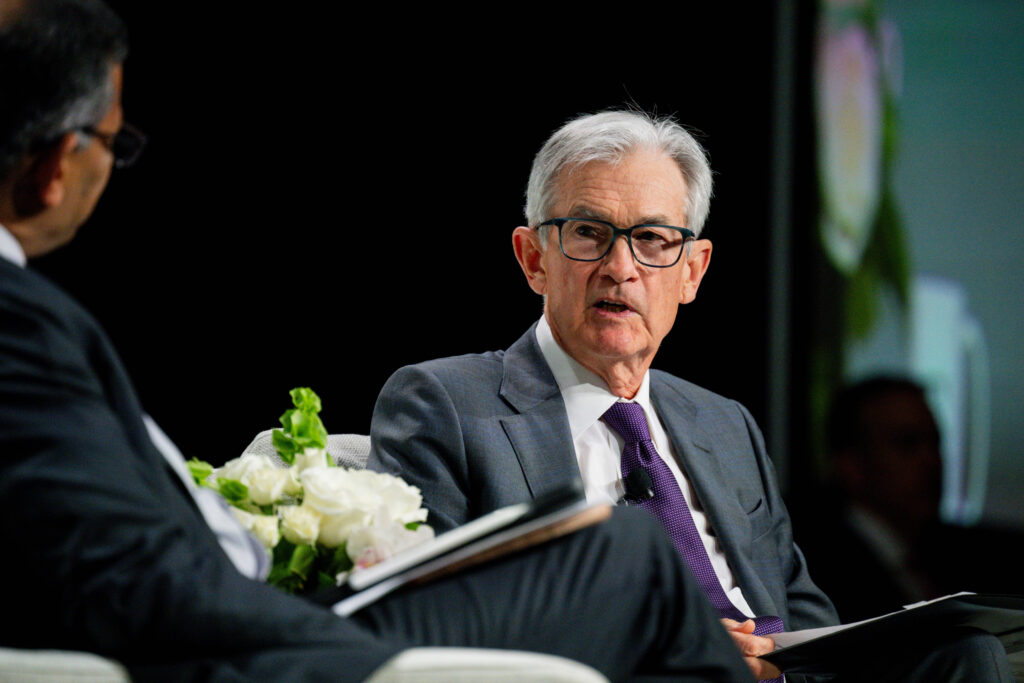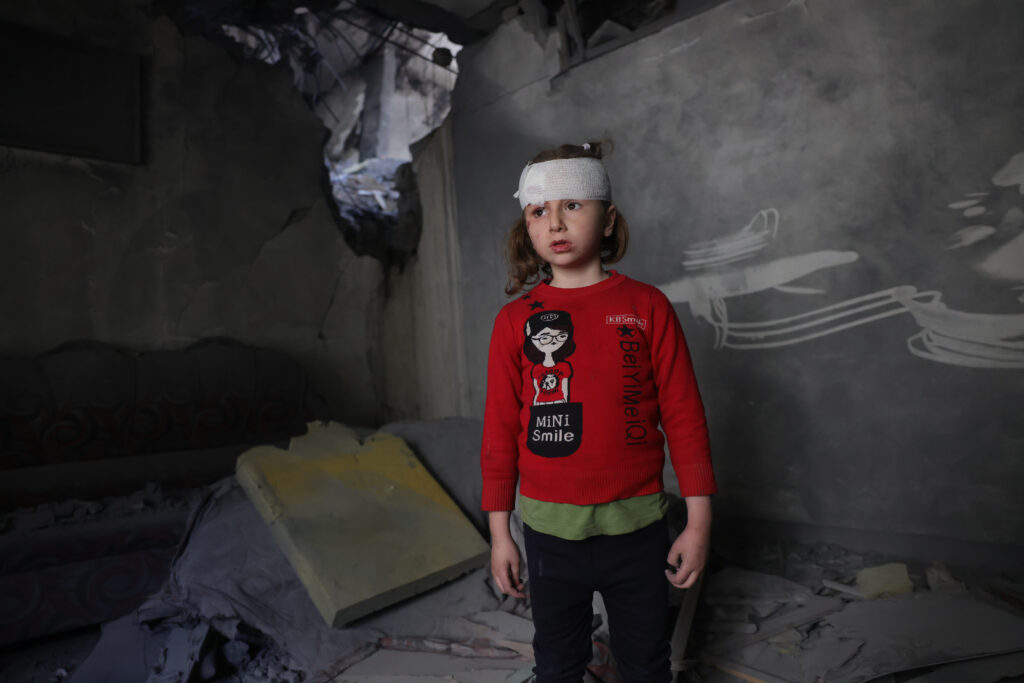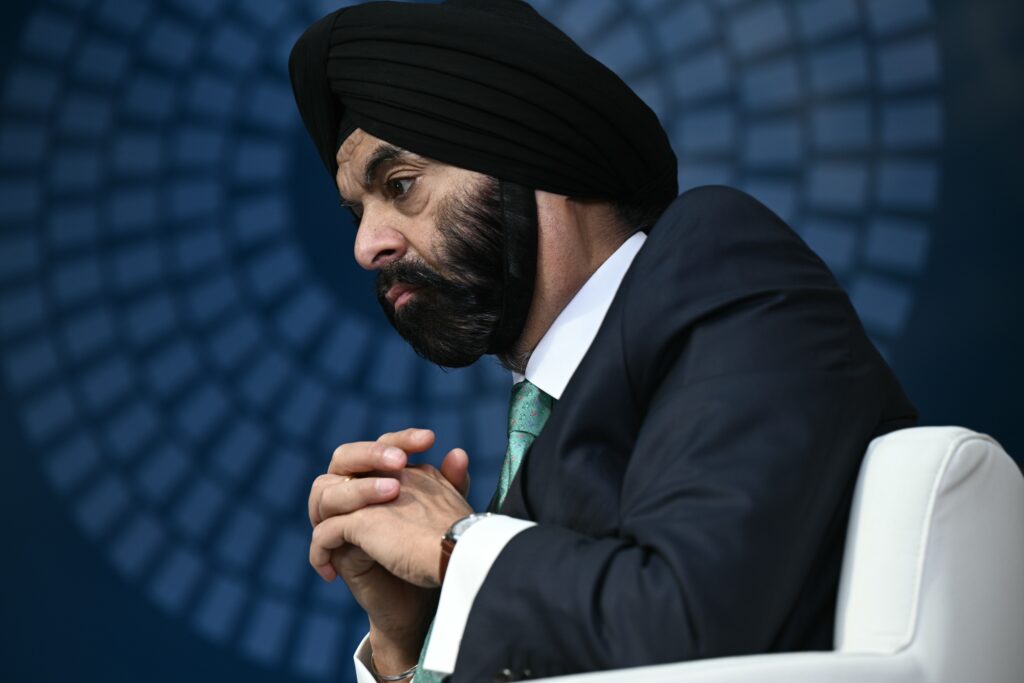AFP Asia Business
Trump tariffs provoke growing economic uncertainty
Concern over the economic fallout from US President Donald Trump’s global tariffs mounted Wednesday, with Fed Chair Jerome Powell’s warning of higher inflation sending stock markets tumbling.Trump remained upbeat, posting on social media that there’d been “Big Progress!” in talks with Japan on a trade deal.He is banking that his strategy, in which tariffs are …
Trump tariffs provoke growing economic uncertainty Read More »
US stocks fall with dollar as Powell warns on tariffs
Wall Street traders were back in sell-off mode Wednesday while the dollar fell further as downcast comments from Federal Reserve Chair Jerome Powell added to weakness in semiconductor giant Nvidia.After a relatively peaceful couple of days on markets following tariff-related volatility last week, investors were once again on the defensive. Gold, a safe-haven asset in …
US stocks fall with dollar as Powell warns on tariffs Read More »
Israel says 30 percent of Gaza turned into buffer zone
Israel announced Wednesday it had converted 30 percent of Gaza into a buffer zone as it pressed its unrelenting military offensive, vowing to maintain its blockade on humanitarian aid to the war-ravaged territory.Prime Minister Benjamin Netanyahu also ordered security chiefs and negotiators to keep pressing for the release of hostages held by Hamas in Gaza, where Israel resumed air and ground attacks on March 18, ending a two-month ceasefire.The United Nations said an estimated 500,000 Palestinians have been displaced since the end of the ceasefire, triggering what it has described as the most severe humanitarian crisis the territory has faced since the war started after the Hamas October 7, 2023 attacks.The Israeli military said that it had “achieved full operational control over several key areas and routes throughout the Gaza Strip”.”Approximately 30 percent of the Gaza Strip’s territory is now designated as an Operational Security Perimeter.”It added that Israeli air strikes had hit “approximately 1,200 terror targets” and that “more than 100 targeted eliminations have been carried out” since March 18.Defence Minister Israel Katz said this month that the military was leaving Gaza “smaller and more isolated”.Israeli officials have repeatedly said that military pressure was the only way to force Hamas to release the 58 hostages still held in Gaza.- ‘No aid for Gaza’ -On Wednesday, Palestinian militant group Islamic Jihad released a video of an Israeli-German hostage, showing him appealing to Israeli authorities and US President Donald Trump to secure his release.His family and Israeli media identified him as Rom Braslavski from Jerusalem, who was abducted at the Nova music festival during the Hamas attack on Israel.In parallel to the Gaza offensive, Hamas said Israel had proposed a new 45-day ceasefire through mediators which would include the release of dozens of hostages.Netanyahu met hostage negotiators and security chiefs on Wednesday and “issued directives for the continuation of the steps to advance the release of our hostages,” his office said in a statement.The proposal also called for Hamas to disarm to secure a complete end to the war, the militant group said. A senior Hamas official, Mahmoud Mardawi, told AFP that the group was still preparing a response to Israel’s document but insisted Hamas “weapons will not be subject to any negotiations”.Katz announced that Israel would continue preventing aid from entering the besieged territory of 2.4 million people.Israel halted the entry of aid on March 2, exacerbating the territory’s humanitarian crisis.”Blocking this aid is one of the main pressure levers preventing Hamas from using it as a tool with the population,” the defence minister said.Medical charity Doctors Without Borders (MSF) said Israeli military operations and the aid blockade had transformed Gaza into a graveyard.”Gaza has been turned into a mass grave of Palestinians and those coming to their assistance,” said MSF coordinator Amande Bazerolle.”With nowhere safe for Palestinians or those trying to help them, the humanitarian response is severely struggling under the weight of insecurity and critical supply shortages,” she said.The UN Office for the Coordination of Humanitarian Affairs gave a new estimate that “about half a million people have been newly displaced or uprooted once more” in Gaza since March 18, having earlier warned that Gaza was facing its most severe humanitarian crisis since the war began.- ICJ hearings -Israel controls the entry of aid and supplies to Gaza.On April 28, the International Court of Justice is to open hearings on Israel’s humanitarian obligations towards Palestinians.The UN General Assembly approved a resolution in December requesting that the court in The Hague give an advisory opinion on the matter.It calls on the ICJ to clarify what Israel is required to do to “ensure and facilitate the unhindered provision of urgently needed supplies essential to the survival of the Palestinian civilian population”.Although ICJ decisions are legally binding, the court has no concrete way of enforcing them.Israel continued to pound Gaza on Wednesday.At least 11 people were killed in air strikes, 10 of them in an attack on Gaza City, the civil defence agency said.The renewed assault has killed at least 1,652 people in Gaza, the health ministry in the Hamas-run territory reported, bringing to 51,025 dead, mostly civilians, since the war erupted.The 2023 attack on Israel resulted in the deaths of 1,218 people, mostly civilians, according to an AFP tally based on official Israeli figures.
Trump touts trade talks, China calls out tariff ‘blackmail’
US President Donald Trump touted tariff negotiations with Japan on Wednesday while China angrily accused Washington of “blackmail” in a trade war that the WTO warns will have “severe” economic consequences for the global economy.Trump remained upbeat about his strategy of imposing global tariffs, then negotiating individual trade agreements, with the goal of lowering barriers …
Trump touts trade talks, China calls out tariff ‘blackmail’ Read More »
Global uncertainty will ‘certainly’ hit growth: World Bank president
The uncertainty kicked up by Donald Trump’s stop-start tariff rollout will undoubtedly hit growth, the president of the World Bank said Wednesday, ahead of next week’s semi-annual meeting of global financial leaders in Washington.”Uncertainty and volatility are undoubtedly contributing to a more cautious economic and business environment,” Ajay Banga told reporters, alluding to the market …
Global uncertainty will ‘certainly’ hit growth: World Bank president Read More »
Israel says no humanitarian aid will enter Gaza
Israel said Wednesday it would keep blocking humanitarian aid entering Gaza, where a relentless military offensive has turned the Palestinian territory into a “mass grave”, a medical charity said.Israel resumed air and ground attacks across the Gaza Strip on March 18, ending a two-month ceasefire with Hamas that had largely halted hostilities in the territory, with rescuers on Wednesday saying at least 11 were killed in strikes across Gaza.Israel had already halted the entry of aid into Gaza on March 2, exacerbating the severe humanitarian crisis in the war-battered territory.Defence Minister Israel Katz said Israel would continue preventing aid from entering the besieged territory of 2.4 million people.”Israel’s policy is clear: no humanitarian aid will enter Gaza, and blocking this aid is one of the main pressure levers preventing Hamas from using it as a tool with the population,” Katz said in a statement Wednesday.”No one is currently planning to allow any humanitarian aid into Gaza, and there are no preparations to enable such aid.”Prime Minister Benjamin Netanyahu has cited military pressure as the only way to secure the release of the 58 hostages currently held in Gaza.”Hamas will continue to suffer blow after blow. We insist that they release our hostages, and we insist on achieving all of our war objectives,” Netanyahu told troops in northern Gaza Tuesday.- ‘Provocative intrusion’ -The Ramallah-based Palestinian foreign ministry denounced his Gaza visit, calling it a “provocative intrusion intended to prolong and intensify the crimes of genocide and forced displacement” of Gazans.On Wednesday, the Palestinian militant group Islamic Jihad released a video of an Israeli hostage, showing him alive and appealing to Israeli authorities and US President Donald Trump to secure his release.Israeli media identified him as Rom Braslavski from Jerusalem, who was abducted by militants from the Nova music festival during Hamas’s attack on Israel on October 7, 2023.Medical charity Doctors Without Borders (MSF) said Israeli military operations and the aid blockade had transformed Gaza into a graveyard for Palestinians and aid workers.”Gaza has been turned into a mass grave of Palestinians and those coming to their assistance,” said MSF coordinator Amande Bazerolle.”With nowhere safe for Palestinians or those trying to help them, the humanitarian response is severely struggling under the weight of insecurity and critical supply shortages, leaving people with few, if any, options for accessing care,” she said.The UN had warned on Monday that Gaza was facing its most severe humanitarian crisis since the war began in October 2023.”The humanitarian situation is now likely the worst it has been in the 18 months since the outbreak of hostilities,” said the UN’s Office for the Coordination of Humanitarian Affairs.In a statement, OCHA said no supplies had reached the territory for a month and a half, and medical supplies, fuel, water and other essentials were in short supply.- ICJ hearings -Israel controls the entry of all aid and supplies to Gaza.On April 28, the International Court of Justice is set to open hearings on Israel’s humanitarian obligations towards Palestinians.The UN General Assembly approved a resolution in December requesting that The Hague-based top court give an advisory opinion on the matter.It calls on the ICJ to clarify what Israel is required to do to “ensure and facilitate the unhindered provision of urgently needed supplies essential to the survival of the Palestinian civilian population”.Although ICJ decisions are legally binding, the court has no concrete way of enforcing them.Israel continued to pound Gaza on Wednesday.At least 11 people were killed in air strikes, 10 of them in an attack on Gaza City, the civil defence agency said.The renewed assault has so far killed at least 1,652 people in Gaza, the health ministry in the Hamas-run territory reported, bringing to 51,025 the total toll since the war erupted in October 2023, most of them civilians.Hamas’s October 7, 2023 attack on Israel resulted in the deaths of 1,218 people, mostly civilians, according to an AFP tally based on official Israeli figures.




